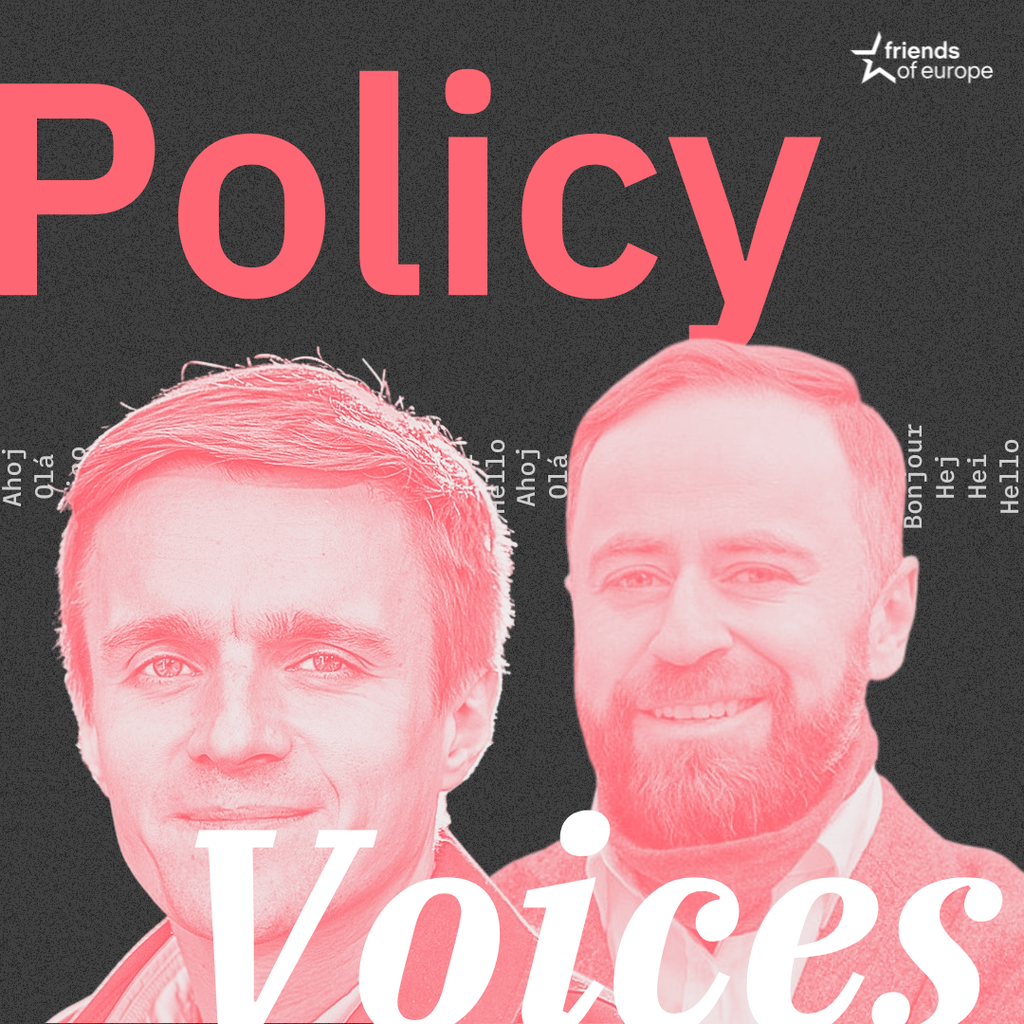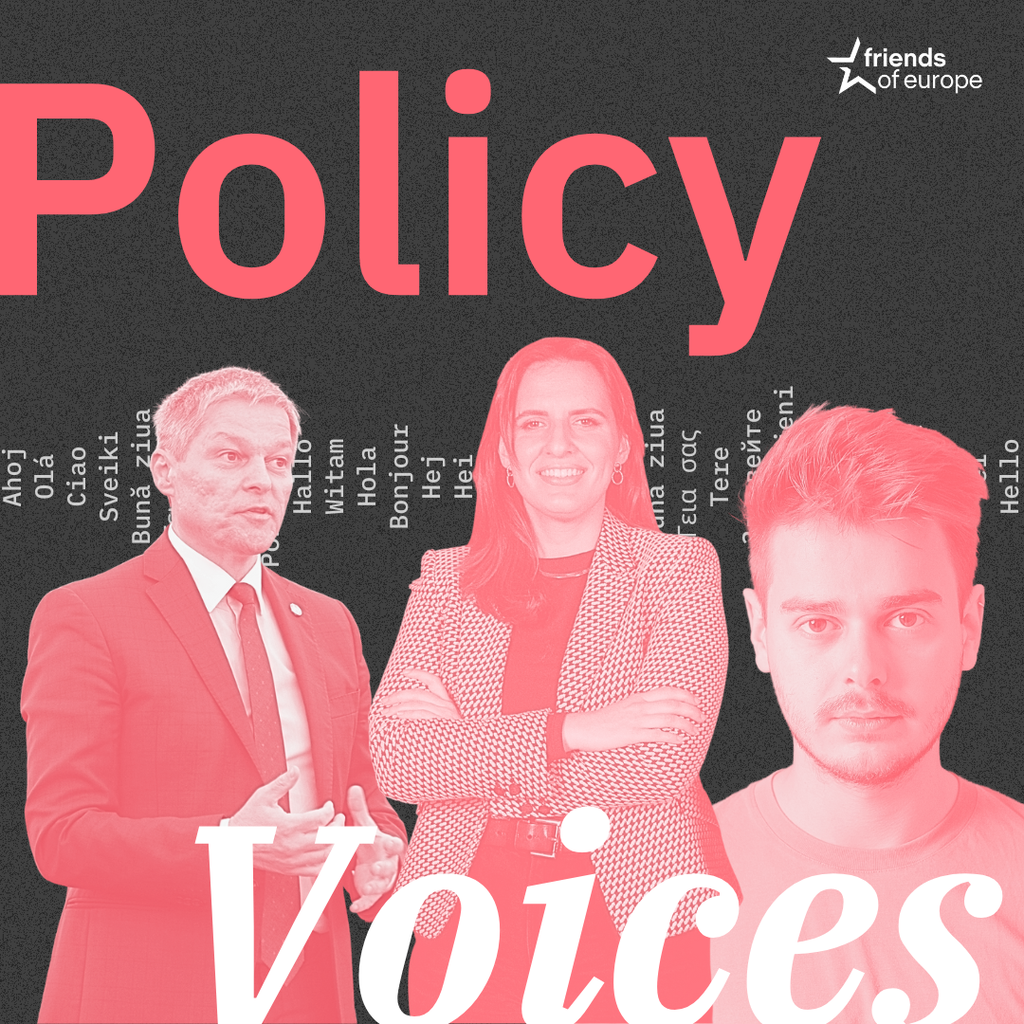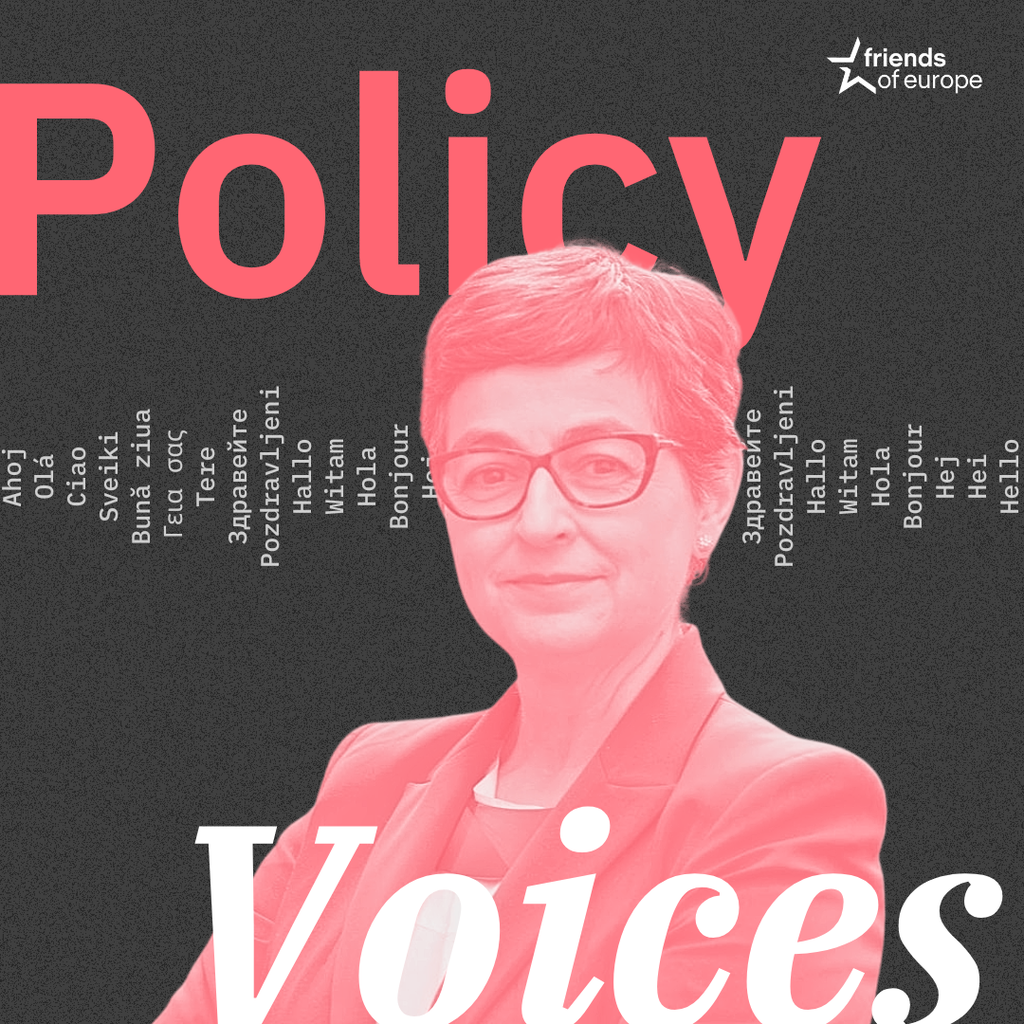Polarisation, disinformation, trust: do young French people think like…
Past event In person

- Area of Expertise
- Democracy
Democracy

Founder of Friends of Europe
Giles Merritt reflects on the growing challenge of ‘selling Europe’ to voters when living standards are under long-term threat.
Is Ursula von der Leyen sending the right messages to public opinion? Rather than soothing lullabies for a sleep-walking Europe, should she not be uttering spine-chilling warnings of decline? The EU’s dilemma is that it must rally policymakers behind ever-tougher measures, but by doing so risks losing public support.
In four years von der Leyen has transformed herself from a little-known German politician into the instantly recognisable figurehead of a more outgoing Europe. She was a surprise compromise choice as European Commission president, but has confounded critics with her sure-footed handling of Covid and the invasion of Ukraine. She’s odds-on to be reappointed next year to a second term.
But is she using her communications skills to convey the right messages? No one expects the head of the EU’s executive body to preach gloom and doom, yet there’s a strong case for a more balanced assessment of the mounting challenges Europe faces, and the costs and sacrifices needed to overcome them.
The EU Commission is to prioritise fresh efforts to improve productivity and global competitiveness, yet has been reluctant to talk about the true scale of the challenge
Last week, President von der Leyen painted an appealingly bright picture when addressing the European Parliament. In her ‘State of the Union’ speech she spoke of next summer’s European elections and held out to young first-time voters the prospect of “the kind of Europe they want.”
Few in Brussels question the worth of these annual stocktakings. They are a useful agenda-setting and reporting mechanism, even if they sometimes lapse into self-congratulation. But there’s a fine line between promoting confidence and encouraging complacency, and this year’s State of the Union speech reflected little of the alarm now being expressed by analysts.
Europe’s economy has been in the doldrums for more than a decade and the social burdens in most EU member states get weightier year on year. The demographic ills of ageing Europe are now upon us and the foremost losers will be younger people – the Millennials born late in the last century and their successors, Generation Z.
The EU Commission is to prioritise fresh efforts to improve productivity and global competitiveness, yet has been reluctant to talk about the true scale of the challenge. A few days before von der Leyen’s speech, her officials announced that “the EU economy continues to grow, albeit with reduced momentum.” That was technically correct, but scarcely reflects the wider picture.
The challenge ahead will be to persuade voters to trade narrow national interest for a stronger, larger Europe
Two independent reports highlight the widening gap between the European and American economies. Fifteen years ago, says the European Council on Foreign Relations, the value of the EU’s goods and services was substantially greater than that of the United States – its GDP was $16 trillion in 2008 and that of the US $14.7 trillion. Today, however, America’s economy is about a third greater than that of the EU and the UK combined.
The European Centre for International Political Economy has measured the transatlantic gap in terms of personal wealth. Germans, it found, are today no more prosperous than the inhabitants of the relatively modest state of Oklahoma, while the French are poorer than people in backward rural Arkansas. “If the trend continues,” says ECIPE, “the prosperity gap between the average European and American in 2035 will be as big as between the average European and Indian today.”
Unlike the US, where the population is growing, Europe is to be handicapped by ageing and by its shrinking workforce. The question that Ursula von der Leyen has to face, as must political, business and civil society leaders across Europe, is how to stimulate greater popular support for the EU when living standards will be increasingly under pressure.
Europe’s seven decades of political and economic integration have at times been zig-zag or stop-go. Nevertheless, the EU’s progress dazzled and amazed the world. But it was underpinned by a rising tide of economic growth that is beginning to ebb. The challenge ahead will be to persuade voters to trade narrow national interest for a stronger, larger Europe. A first step could be ‘State of the Union’ addresses that tell it like it is.
The views expressed in this Frankly Speaking op-ed reflect those of the author and not of Friends of Europe.
You may also like…
Past event In person

Past event In person - Prato, Italy

Past event In person

Past event In person, Berlin





Stay informed
We use cookies and similar technologies to adjust your preferences, analyze traffic and measure the effectiveness of our campaigns. Learn more about our privacy policy.